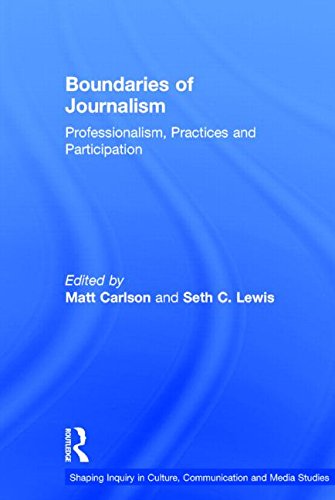

Most ebook files are in PDF format, so you can easily read them using various software such as Foxit Reader or directly on the Google Chrome browser.
Some ebook files are released by publishers in other formats such as .awz, .mobi, .epub, .fb2, etc. You may need to install specific software to read these formats on mobile/PC, such as Calibre.
Please read the tutorial at this link: https://ebookbell.com/faq
We offer FREE conversion to the popular formats you request; however, this may take some time. Therefore, right after payment, please email us, and we will try to provide the service as quickly as possible.
For some exceptional file formats or broken links (if any), please refrain from opening any disputes. Instead, email us first, and we will try to assist within a maximum of 6 hours.
EbookBell Team

5.0
60 reviewsThe concept of boundaries has become a central theme in the study of journalism. In recent years, the decline of legacy news organizations and the rise of new interactive media tools have thrust such questions as "what is journalism" and "who is a journalist" into the limelight.
Struggles over journalism are often struggles over boundaries. These symbolic contests for control over definition also mark a material struggle over resources. In short: boundaries have consequences. Yet there is a lack of conceptual cohesiveness in what scholars mean by the term "boundaries" or in how we should think about specific boundaries of journalism.
This book addresses boundaries head-on by bringing together a global array of authors asking similar questions about boundaries and journalism from a diverse range of perspectives, methodologies, and theoretical backgrounds.
Boundaries of Journalism assembles the most current research on this topic in one place, thus providing a touchstone for future research within communication, media and journalism studies on journalism and its boundaries.